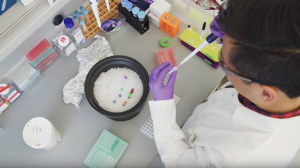NEW YORK (Reuters Health) – Starting estrogen-progestogen therapy close to menopause may increase the risk of breast cancer, even with short-duration treatment, according to a report in the September 14th online issue of the Journal of Clinical Oncology. This may not be the case, however, if the progestogen is progesterone.
Such therapy is known to be linked with breast cancer, but whether the risk varies based on the interval between menopause onset and the start of treatment was unclear, the report indicates.
To investigate, Dr. Francoise Clavel-Chapelon, from Institut Gustave Roussy in Villejuif, France, and colleagues analyzed data on 53,310 postmenopausal women who were part of the French E3N cohort. Between 1992 and 2005, during an average follow-up of 8.1 years, 1726 invasive breast cancers were diagnosed.
The risk of breast cancer did, in fact, vary according to when hormone therapy was started, the researchers found. For instance, short-duration therapy (2 years or less) started within 3 years of menopause onset increased the odds of cancer by 54%, whereas initiation of short-duration treatment beyond that point did not increase the risk (p = 0.04).
Short-duration therapy did not increase the odds of breast cancer if the progestogen used was progesterone, the report indicates.
Longer durations of treatment (more than 2 years) were generally associated with elevated risks, regardless of the timing from menopause onset.
Until these findings can be confirmed, “it would seem that a conservative approach regarding use of combined hormone therapy at menopause is warranted, using hormones briefly and only when menopausal symptoms are so intense that no other approach will work,” Dr. Leslie Bernstein, from the City of Hope Comprehensive Cancer Center, Duarte, California, writes in a related editorial.
Reference:
J Clin Oncol 2009.




